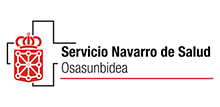What will you learn?

If we compare a Spanish hospital 40 years ago with one today, it is clear that technology has played a major role. From the diagnostic conference room , to the rooms where patients are recovered, electronic equipment and mechanical devices play a major role. Today the main control parameters of a patient are recorded in real time on a mobile control unit and in the future the nurse will receive wireless information from her control unit.
As a graduate in Biomedical Engineering you could participate in projects at research in technology centres, at a department of design and development of medical devices or equipment.
You will be able to work in...

You will be able to develop electrochemical, piezoelectric, thermal, etc. microsensors that enable early diagnosis of diseases or control of medical parameters. You will also be able to develop software that facilitates the processing of brain signals or medical images, improve tissue regeneration and obtain biomaterials that offer fewer rejections.
You will work in multidisciplinary teams with biologists, biochemists, physicians, pharmacists and engineers, researching, designing and developing medical solutions and applications.
Your contribution to society will be focused on helping to predict diseases better and earlier, to make the cure of some of them faster and more effective, to make life after an intervention of higher quality thanks to specific devices.
Your work will be oriented towards people's health and your main goal will be to improve the quality of life of our society through engineering.
Collaborating companies






















